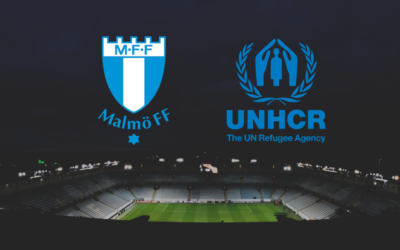A historic deal for refugees
In 2018, the world agreed on a new way forward for refugees and their hosts. The agreement, known as the Global Compact on Refugees, aims to improve the international response to new and existing refugee situations, and it seeks to ensure that refugees and the people hosting them receive the support they need.
The Nordic and Baltic countries have been strong and engaged supporters of the Global Compact on Refugees from the beginning. At the world’s first Global Refugee Forum in 2019, the countries in the region provided a large number of important pledges, contributing with vital initiatives, partnerships and financial support, demonstrating commitments to realize the objectives of the Global Compact on Refugees.
What is the Global Compact on Refugees?
The Global Compact on Refugees – that was affirmed by the United Nations General Assembly in 2018 – is a framework for more predictable and equitable responsibility-sharing, recognizing that a sustainable solution to refugee situations cannot be achieved without international cooperation. It provides a blueprint for governments, international organizations, and other stakeholders to ensure that host communities get the support they need and that refugees can lead productive lives. It constitutes a unique opportunity to transform the way the world responds to refugee situations, benefiting both refugees and the communities that host them.
The four key objectives of the Global Compact on Refugees are:
- Ease the pressures on host countries;
- Enhance refugee self-reliance;
- Expand access to third-country solutions;
- Support conditions in countries of origin for return in safety and dignity.
The Global Compact on Refugees emerged from the milestone New York Declaration for Refugees and Migrants in 2016, laying out a vision for a more comprehensive and equitable response to refugee crises.
Learn more about the Global Compact on Refugees

Digital platform
On the digital platform for the Global Compact on Refugees you can find an overview of pledges, track the progress and explore good practices.

UNHCR's Quick guide
Learn the basics about the Global Compact on Refugees in this Q&A from UNHCR.

Global Compact on Refugees Booklet
In this booklet you can read the Global Compact on Refugees in full.
Global Refugee Forum
Held every four years, the Global Refugee Forum allows States and other actors to come together to share good practices and contribute with financial support, technical expertise and policy changes to help reach the goals of the Global Compact. The first Global Refugee Forum took place in December 2019 and was a milestone in building solidarity with the world’s refugees and the countries and communities that host them. Find more info in the report “Outcomes of the Global Refugee Forum 2019”.
The next Global Refugee Forum will take place in December 2023 in Geneva. Read more about the Forum here.
News on Global Compact on Refugees & Global Refugee Forum
UNHCR, States, partners meet today to assess Global Refugee Forum’s progress
High Level Officials Meeting takes place 14–15 December
Football club Malmö FF becomes first sports club in Sweden to pledge commitment to support integration of refugees through work and sport opportunities
Recognizing the power of sport in bringing people together, UNHCR, the UN Refugee Agency, and Malmö FF today announce a partnership towards strengthening refugee integration and inclusion in the city of Malmö, Sweden. Malmö FF is pledging to increase employment...
IKEA Foundation and Conrad N. Hilton Foundation invest in better data to boost protection and wellbeing of refugees
The World Bank-UNHCR Joint Data Center on Forced Displacement (JDC) today announced new partnerships—with IKEA Foundation and Conrad N. Hilton Foundation—to understand the challenges of the forcibly displaced and their hosts so that the private sector, governments,...
UNHCR strengthens efforts on digital identity for refugees with Estonian support
In a successful implementation of its pledge at the Global Refugee Forum, Estonia has provided an expert on digital identity to further UNHCR’s efforts in digital transformation.
The LEGO Foundation and UNHCR come together to bring the power of learning through play to refugee children in Ethiopia
The partnership ensures 37,500 refugee and host community children can continue their education during the COVID-19 pandemic.
Nordic and Baltic countries pledge important support for refugee education
From the Global Refugee Forum: Learn more about some of the Nordic and Baltic commitments aimed at enabling more refugees to go to school.







